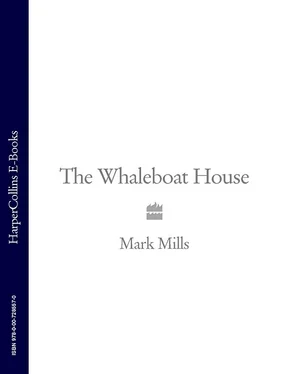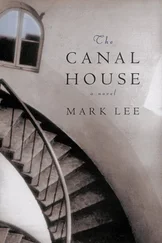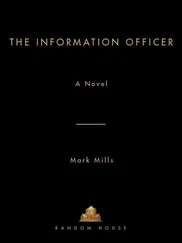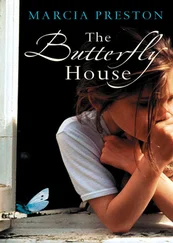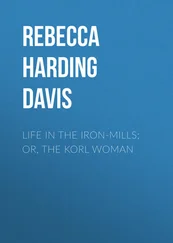Conrad had witnessed the ‘Fisherman’s Special’ pull into Montauk Station only once, but it wasn’t a sight you were ever likely to forget – hundreds of grown men, many of whom had been on their feet for the past four hours, grappling with their gear and with each other to get off that train, leaping from the carriages, scrabbling through windows, anything to beat their friends-turned-rivals to the favored spots on the boats lined up along the Union News Dock on Fort Pond Bay, a short but sapping sprint away.
To the fishermen of the South Fork, the building crusade against them was an affront of such profound impertinence it made the blood beat in their ears. These were men whose families had fished the waters off the East End for as long as anyone could remember, for twelve generations in the case of the older Amagansett clans. They were the representatives of a tradition reaching back hundreds of years, and many still spoke with the same Kentish and West Country inflections of their seventeenth-century English ancestors who had first settled the village.
Ned Kemp understood that these romantic notions counted for nothing in Albany. The sportsfishermen were wealthy, they could afford the best lawyers, and they were accustomed to getting their own way. It was the reason Ned had called the meeting at Oyster Hall, to urge the fishermen to meet like with like, to act with level-headed pragmatism. But the discussion had clearly become mired in a collective venting of the spleen.
‘I know I ain’t a tub of wisdom,’ said Noah Poole, too old now to do anything but grub for piss clams in summer. ‘The way I sees it though, God Almighty put the fish in the water and the birds and animals in the woods for the people, and when you make any fool laws that stops the people from using ’em, then God Almighty makes ’em scarce.’
‘You’re right …’ said Jack Holden. Noah accepted the compliment by smoothing the few lonely wisps of hair on his head. ‘ … You ain’t no tub of wisdom,’ continued Jack.
This triggered a chorus of sniggers from the other young men he was seated with.
‘You boys got nothin’ better to contribute,’ said Ned, ‘you might as well clear off.’
‘What’s to say? This crap them sports is trying to put over on us, it burns me up,’ said Jack. ‘Sometimes the fish don’t run so good. There’s good and bad seasons for fish just like crops to a farm.’
‘Yeah.’
‘The bass and blues is down right now. Come next year they’ll be running like a damn army. That’s just the way things is.’
‘Always has been.’
Ned looked down at the younger men, deep furrows in his lean dark face, his white hair clipped so short it sat like a dusting of frost on his square skull. ‘We know that,’ he said. ‘Now we got to show it. Prove it.’
‘How’n the hell we gonna do that?’ came a voice from across the hall.
‘First off, I say we co-operate with that young fellow who’s around right now.’
‘You mean that screwball who keeps wantin’ to scrape scales off of my fish?’
There was a smattering of laughter from around the hall. The source of their amusement was a young fisheries biologist with the New York State Conservation Department. Sheepish, bespectacled and with a nose like a cobbler’s awl, the poor fellow had become something of a whipping boy for the local fishermen who openly referred to his biological survey as the ‘diabolical survey’ whenever he dared show his face.
‘I been talking to him,’ said Ned. ‘He’s a log of stuff to learn about fishing, but what he don’t know about bass ain’t worth knowing.’ He ignored the incredulous puffs from his audience. ‘It’s all in the spawning, he says, the Hudson and Chesapeake. The conditions ain’t right for the cows in the estuaries, ain’t no point in us and the sports even arguing, not one of us is going to see a fish off the East End.’
‘Fact is, the sports is takin’ more bass than us anyhows.’
‘Goddamn pinhookers.’
‘Yeah, what we take don’t amount to nothin’.’
‘He knows that, he’s with us on it. Like I say, the problem don’t lie here, it’s in the estuaries, the pollution from the factories.’
‘Factories owned by them politicians and their friends.’
‘Yeah, what good’s a sorry scamp like that going to do against them lot?’
‘If anything can drive you crazy or into evil, it’s politics.’
‘That’s the truth.’
‘I say him being here don’t spell nothin’ good.’
‘No, not by a damned sight.’
And so the discussion continued, despite Ned’s best efforts, whirling, reeling, spinning in circles, until Conrad’s head was swimming with words he no longer heard. The hall suddenly felt very small and congested, the atmosphere heavy, stifling. He steadied himself against the rear wall with a hand. He needed air.
The door swung shut behind him as he stepped outside into the night. A cloud of bugs buzzed around the tin lamp above the door, and for a moment it seemed to Conrad that they too were embroiled in some feverish, futile debate.
He drew a few long, deep breaths, but they did nothing to clear his head. He picked his way cautiously down the steps and towards the truck, each stride an act of concentration. Halfway across the lot he heard the door of the hall swing open then bang shut again. He didn’t turn till he heard the footsteps crunching behind him on the carpet of crushed shells, a pace and purpose to the tread.
Three men were advancing towards him, shoulder to shoulder, backlit by the lamp above the door. The jug-eared silhouette of the fellow on the right marked him out as Ellis Hulse. As they drew closer he recognized the other two as Charlie Walsh and his squat, none-too-intelligent brother-in-law, Dan Geary. And he knew then what was coming.
If there was any doubt, Ellis and Dan moved away from Charlie, drifting lazily off to the sides. Charlie drew to a halt, scraping at the shells underfoot with the toe of his boot. ‘So what do you think?’ he asked, nodding over his shoulder. ‘You think we’ll beat the bill?’
Conrad could feel the lightness shifting from his head to his stomach. ‘Go home, Charlie.’
Charlie looked at him as if seriously weighing the suggestion. ‘Shit on that,’ he said.
Dan Geary grunted with amusement, moving, still moving, around to the left. Ellis was circling to the right, obliging Conrad to retreat a little to keep them both in view.
Charlie advanced a few paces. ‘Just wanted to say I’m sorry, for before.’ His mouth was twisted between self-pity and bitter contempt. Conrad toyed with the idea of further conciliation but rejected it, not because he doubted it would work – that much was certain – but because he no longer wanted it to.
‘So you should be,’ he said, ‘stealing off the dead.’
‘A pair of damn earrings. What the hell does she care?’
‘What if it was your sister?’ fired back Conrad.
It took a moment for Dan Geary to register that Charlie’s sister also happened to be his own wife, but once the thought had lodged itself in his brain it appeared to bother him. He looked at his brother-in-law uncertainly.
‘What?’ snapped Charlie.
‘Nothing, Charlie.’
‘Good,’ cos it’s time we taught this foreigner some goddamn manners.’
Charlie Walsh wasn’t flame-headed like his father, but he still had the fire in him. Conrad could see it sparking in his eyes as he turned back, balling his fists. Conrad could remember his father telling him once in his labored English: ‘You just got to get an Irish down ’n’ beat shit out of him, then he’s the best friend you got.’
Even if they ganged him, as they clearly planned on doing, Conrad stood a fair chance of putting Charlie Walsh down, but he seriously doubted they’d ever become friends because of it. No, he set more store by the other piece of advice his father had offered up at the same time, much to the consternation of his step mother. If you’re ever outnumbered in a fight, he had said, keep your eyes on one man, but be sure to land your first punch on another.
Читать дальше
